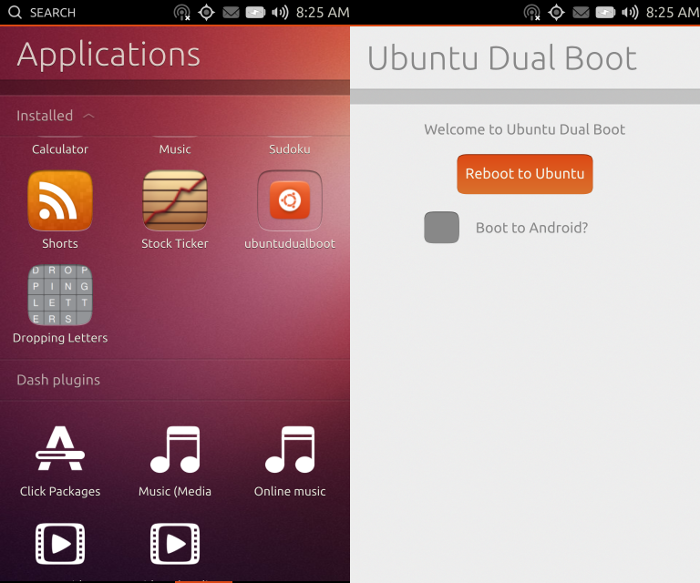

Ubuntu Mobile can now run alongside Android on a single device, but Canonical has warned the new feature is unsuitable for regular users and should only be installed by developers.
The functionality can be installed in a few easy steps and requires the one-off installation of an Android dual boot application, which enables users to install both the chosen version of Ubuntu and the ability to reboot into the operating system.
However it is keen to stress that only developers that are comfortable with flashing devices and their partition layout should use the feature as dual boot rewrites the Android recovery partition. It recommends that those installing it should be “intimately familiar” with re-flashing in case something goes wrong.
The touchscreen version of Ubuntu Mobile was released earlier this year and forms part of Canonical’s plan for converged computing. It says Ubuntu Mobile can run the same desktop applications as Ubuntu desktop and is hoping to capitalise on its popularity on PCs by targeting businesses and emerging markets.
Canonical had hoped to release its own Ubuntu Mobile-powered smartphone, the Ubuntu Edge, and to raise $32 million ($20.8m), but despite becoming the world’s biggest ever fixed crowdfunding campaign, it missed its target by two thirds.
A total of $12,809,906 (£8,228,625) was raised, with support coming from 20,000 people, along with Bloomberg, which gave $80,000 (£51,000), and several smaller businesses.
However, Canonical remained confident that the publicity and support would encourage other manufacturers to support the project, with CEO Mark Shuttleworth promising smartphones running the platform would be released in 2014.
He said the project had advanced discussions with manufacturers, while a number of the world’s biggest mobile networks have signed up to the Ubuntu Carrier Advisory Group.
Ubuntu Mobile is just one of a number of open source mobile operating systems to emerge in the last few years, with Sailfish, Tizen and Firefox OS all looking to position themselves as genuine alternatives to iOS and Android.
How much do you know about Linux? Take our quiz!
SoftBank has agreed a funding deal that will see OpenAI being provided with up to…
Tesla sales have plummeted to lowest level in three years, as deliveries of new EVs…
New addition. Next generation foundation model, as Amazon Nova model launches to perform actions within…
Head of artificial intelligence research at Meta Platforms has announced she is leaving the social…
No decision yet, after media reports CK Hutchison was to spin off its global telecom…
Ahead of 5 April deadline, Trump is to hold White House meeting over possible investors…